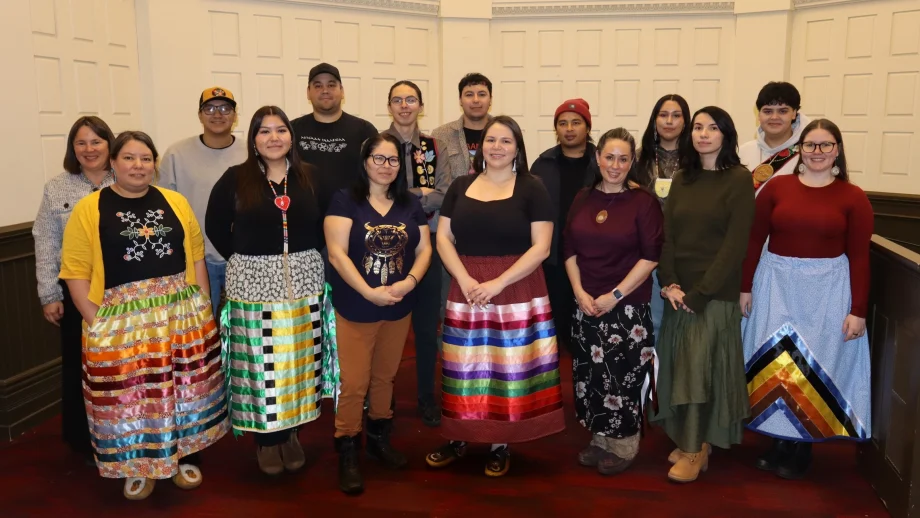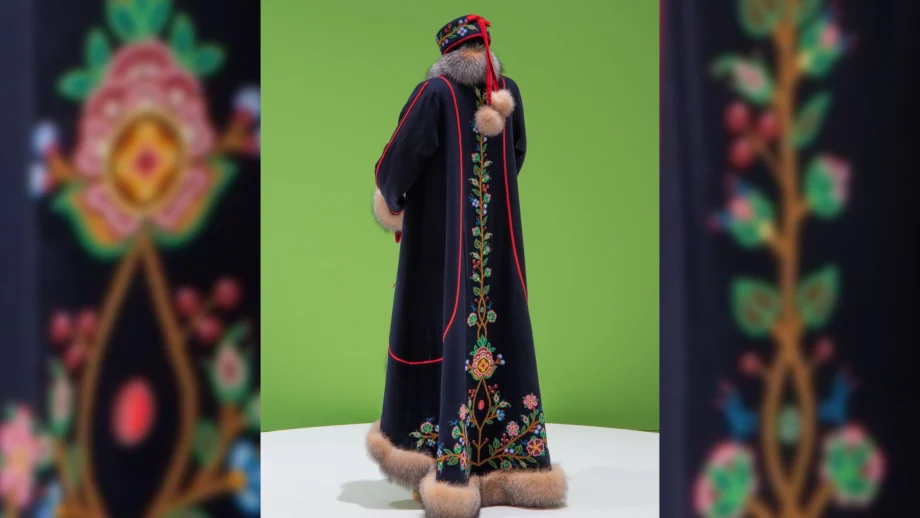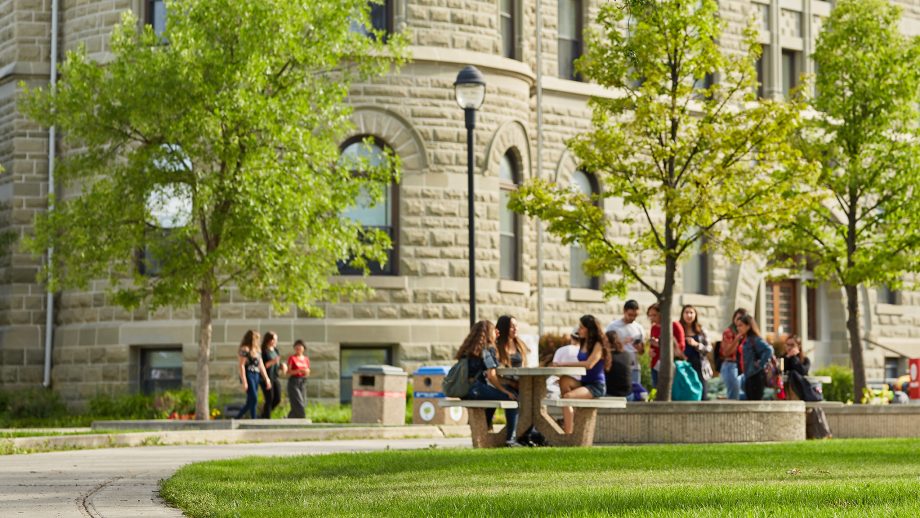UWinnipeg graduates will have a baseline knowledge about Indigenous people and culture, thanks to the new Indigenous Course Requirement (ICR), which was unanimously approved today by The University of Winnipeg Senate, the body responsible for UWinnipeg’s academic governance. The decision exemplifies the University’s leadership in responding to the recommendations made in the final report of the Truth and Reconciliation Commission (TRC).
UWinnipeg is one of the first universities in the country to mandate that all students will learn about Indigenous peoples. Previously approved in principle, the ICR will make Indigenous learning part of the undergraduate degree requirements for all new students, beginning in the fall of 2016. Graduation requirements for existing UWinnipeg students will not be affected.
To fulfill the requirement, students may choose from a number of 3 credit-hour courses in which the greater part of the content is local Indigenous material — derived from or based on an analysis of the cultures, languages, history, ways of knowing or contemporary reality of the Indigenous peoples of North America.
The number of credit hours required to graduate will not change. The ICR proposal was originally brought forth in February by The University of Winnipeg Students’ Association (UWSA) and the Aboriginal Students’ Council, in consultation with the University’s Indigenous Advisory Council.
“This is a proud, joyous, and historic day for The University of Winnipeg community,” said Dr. Annette Trimbee, UWinnipeg President & Vice-Chancellor. “We recognize our responsibility to commit to the TRC recommendations and today’s decision by our faculty effectively implements a good number of them. We have taken an important step to integrate Indigenous knowledge, perspectives, and worldview into our curricula and culture.”
“Education plays a huge role in advancing reconciliation. In every field, from science to business to education, engaging with First Nations, Metis and Inuit peoples is the new reality in this country. I’m very proud to say our students will be better prepared for that environment and that will be a competitive advantage for them,” said Wab Kinew, Associate Vice-President, Indigenous Affairs.
In the coming months, a full list of courses that qualify for the ICR will be determined by academic departments for selection by new students who register for the 2016-17 school year.
-30-
MEDIA CONTACT:
Kevin Rosen, Executive Director, Marketing & Communications
T: 204.786.9381 E: k.rosen@uwinnipeg.ca
================================================
Click here for FAQ on the Indigenous Course Requirement
Click here to read the Globe and Mail commentary published December 10, 2015
================================================
*With the unanimous approval by UWinnipeg Senate of the Indigenous Course Requirement (IRC), The University of Winnipeg has responded, at least in part, to ten of the Calls to Action from the TRC report, as follows. This includes UWinnipeg students who are on pre-med and pre-law trajectories.
14) We call upon the federal government to enact an Aboriginal Languages Act that incorporates the following principles:i. Aboriginal languages are a fundamental and valued element of Canadian culture and society, and there is an urgency to preserve them.
ii. Aboriginal language rights are reinforced by the Treaties.
iii. The federal government has a responsibility to provide sufficient funds for Aboriginal-language revitalization and preservation.
iv. The preservation, revitalization, and strengthening of Aboriginal languages and cultures are best managed by Aboriginal people and communities.
v. Funding for Aboriginal language initiatives must reflect the diversity of Aboriginal languages.
24) We call upon medical and nursing schools in Canada to require all students to take a course dealing with Aboriginal health issues, including the history and legacy of residential schools, the United Nations Declaration on the Rights of Indigenous Peoples, Treaties and Aboriginal rights, and Indigenous teachings and practices. This will require skills-based training in intercultural competency, conflict resolution, human rights, and anti-racism.
27) We call upon the Federation of Law Societies of Canada to ensure that lawyers receive appropriate cultural competency training, which includes the history and legacy of residential schools, the United Nations Declaration on the Rights of Indigenous Peoples, Treaties and Aboriginal rights, Indigenous law, and Aboriginal–Crown relations. This will require skills-based training in intercultural competency, conflict resolution, human rights, and anti-racism.
28) We call upon law schools in Canada to require all law students to take a course in Aboriginal people and the law, which includes the history and legacy of residential schools, the United Nations Declaration on the Rights of Indigenous Peoples, Treaties and Aboriginal rights, Indigenous law, and Aboriginal–Crown relations. This will require skills-based training in intercultural competency, conflict resolution, human rights, and anti-racism.
60) We call upon leaders of the church parties to the Settlement Agreement and all other faiths, in collaboration with Indigenous spiritual leaders, Survivors, schools of theology, seminaries, and other religious training centres, to develop and teach curriculum for all student clergy, and all clergy and staff who work in Aboriginal communities, on the need to respect Indigenous spirituality in its own right, the history and legacy of residential schools and the roles of the church parties in that system, the history and legacy of religious conflict in Aboriginal families and communities, and the responsibility that churches have to mitigate such conflicts and prevent spiritual violence.
62) We call upon the federal, provincial, and territorial governments, in consultation and collaboration with Survivors, Aboriginal peoples, and educators, to:i. Make age-appropriate curriculum on residential schools, Treaties, and Aboriginal peoples’ historical and contemporary contributions to Canada a mandatory education requirement for Kindergarten to Grade Twelve students.
ii. Provide the necessary funding to post-secondary institutions to educate teachers on how to integrate Indigenous knowledge and teaching methods into classrooms.
iii. Provide the necessary funding to Aboriginal schools to utilize Indigenous knowledge and teaching methods in classrooms.
Establish senior-level positions in government at the assistant deputy minister level or higher dedicated to Aboriginal content in education.
63) We call upon the Council of Ministers of Education, Canada to maintain an annual commitment to Aboriginal education issues, including:i. Developing and implementing Kindergarten to Grade Twelve curriculum and learning resources on Aboriginal peoples in Canadian history, and the history and legacy of residential schools.
ii. Sharing information and best practices on teaching curriculum related to residential schools and Aboriginal history.
iii. Building student capacity for intercultural understanding, empathy, and mutual respect.
iv. Identifying teacher-training needs relating to the above.
86) We call upon Canadian journalism programs and media schools to require education for all students on the history of Aboriginal peoples, including the history and legacy of residential schools, the United Nations Declaration on the Rights of Indigenous Peoples, Treaties and Aboriginal rights, Indigenous law, and Aboriginal–Crown relations.
90) We call upon the federal government to ensure that national sports policies, programs, and initiatives are inclusive of Aboriginal peoples, including, but not limited to, establishing:i. In collaboration with provincial and territorial governments, stable funding for, and access to, community sports programs that reflect the diverse cultures and traditional sporting activities of Aboriginal peoples.
ii. An elite athlete development program for Aboriginal athletes.
iii. Programs for coaches, trainers, and sports officials that are culturally relevant for Aboriginal peoples.
iv. Anti-racism awareness and training programs.
92) We call upon the corporate sector in Canada to adopt the United Nations Declaration on the Rights of Indigenous Peoples as a reconciliation framework and to apply its principles, norms, and standards to corporate policy and core operational activities involving Indigenous peoples and their lands and resources. This would include, but not be limited to, the following:i. Commit to meaningful consultation, building respectful relationships, and obtaining the free, prior, and informed consent of Indigenous peoples before proceeding with economic development projects.
ii. Ensure that Aboriginal peoples have equitable access to jobs, training, and education opportunities in the corporate sector, and that Aboriginal communities gain long-term sustainable benefits from economic development projects.
iii. Provide education for management and staff on the history of Aboriginal peoples, including the history and legacy of residential schools, the United Nations Declaration on the Rights of Indigenous Peoples, Treaties and Aboriginal rights, Indigenous law, and Aboriginal–Crown relations. This will require skills-based training in intercultural competency, conflict resolution, human rights, and anti-racism.




